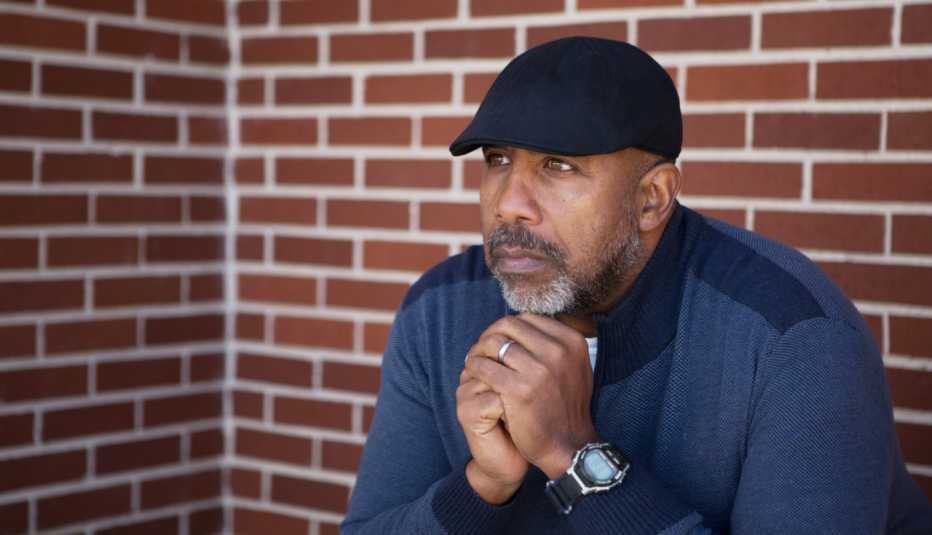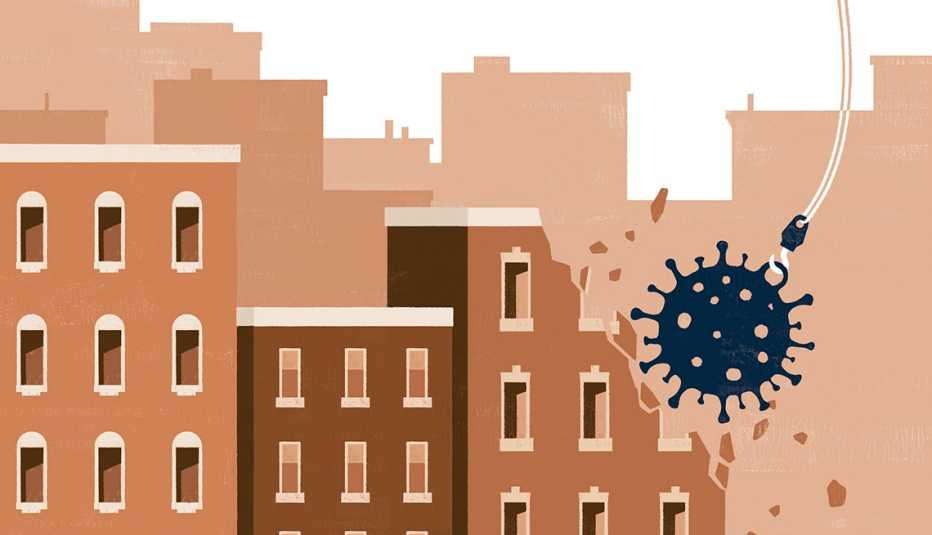AARP Hearing Center
Even if you're avoiding COVID-19 by keeping your distance from others and wearing a face mask, the pandemic can be affecting your health in other ways. Many, for instance, are missing their usual yoga or fitness class. For others, the fear of illness, the absence of family and friends, and the unwelcome lifestyle changes are sending stress levels through the roof.
These are no small things when it comes to your health. “Stress expresses itself in all of the body's organs — and usually not in a good way,” says dermatologist David J. Leffell, chief of dermatologic surgery and cutaneous oncology at the Yale School of Medicine.
Like our early ancestors, humans are wired to spring into action when faced with a threat (think: snarling tiger), and our bodies have evolved to release a cascade of hormones that help us face it down or run away — the fight-or-flight response. “Adrenaline, cortisol and norepinephrine activate the body to deal with a real or perceived threat,” says Melanie Greenberg, a clinical psychologist in Mill Valley, California, and author of The Stress-Proof Brain: Master Your Emotional Response to Stress Using Mindfulness and Neuroplasticity.
The problem occurs when people stay in a continuously activated state. Marinating in stress hormones can lead to a multitude of health issues, including headaches, heart attacks, weight gain, digestive troubles, skin rashes, general aches and pains, and even accelerated aging. Stress can also shorten telomeres, the caps at the ends of strands of DNA that protect chromosomes from damage, Greenberg says. “Over time, they can fray, almost like a shoelace, and stress makes them fray quicker,” she says.
Here's where you may be seeing the effects COVID-related circumstances and worry now:
Your heart and blood flow
Higher blood pressure is the immediate concern of cardiologists watching the effects of stress on their patients. It in turn makes blood vessels stiffer and more prone to inflammation.
Plus, “if you are in a constant heightened stress state, the normal processes that occur to heal your blood vessels get switched off, because your body needs to respond to the threat,” says Tomas H. Ayala, a cardiologist at Mercy Medical Center in Baltimore. “It doesn't have time to heal.”






































































